ocean
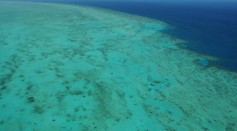
Global Warming Brings Coral Bleaching In The Great Barrier Reef
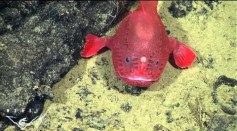
Walking Fishes: Sea Robin, Pink Frogmouth, Caught On Camera At The Ocean Floor
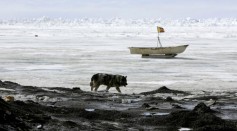
Oxygen Decreases In Oceans Affecting Not Only Aquatic Animals
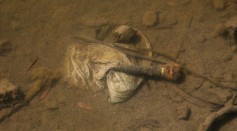
Man-Made Wastes Reaches 7 Miles Deep To Mariana Trench
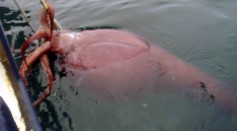
Mismatched Eyes Of The 'Cockeyed' Squid Help Them To Survive In The Twilight Zone Of Ocean
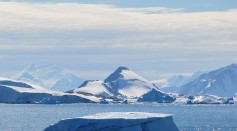
Once Solid Peninsula in Antarctica Begins to Melt
Seeing With Its Skin—How An Octopus Can Live In the Deep
Port of Los Angeles Reveals a New Resident of the City—A Roly Poly Pillbug Species
Ocean Microbes and How They Affect Our Atmosphere in the Age of Climate Change
Octopus Arm Inspires Future Surgical Tool
Overfishing Leads to Aggressive Competition in Caribbean Coral Reefs
Introducing the Pocket Shark
Vampire Squids Reveal Far More Secrets Below—How These Deep-Sea Dwellers Are Changing The Biology Game
Two Sperm Whale Deaths Spark Conversation of Conservation Efforts in Florida
Most Popular

Tapeworm in Brain Found To Be Culprit of Man's Severe Migraines; Eating Undercooked Bacon, Not Washing Hands Properly Could Be To Blame For Infection

RSS Tool "Saber" Set to Revolutionize the Oil and Gas Industry

Pink Moon Will Be Visible During Lyrid Meteor Shower; Here's the Best Time to Watch It
![Earth's Quasi-Moon Kamo‘oalewa Could Originate From Lunar Surface Not Asteroid Belt [Study]](https://1721181113.rsc.cdn77.org/data/thumbs/full/53275/89/56/50/40/earths-quasi-moon-kamo-oalewa-could-originate-from-lunar-surface-not-asteroid-belt-study.png)
Earth’s Quasi-Moon Kamo’oalewa Could Originate From Lunar Surface Not Asteroid Belt [Study]






